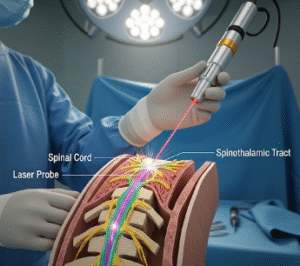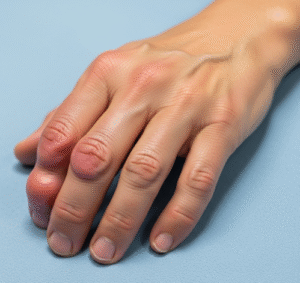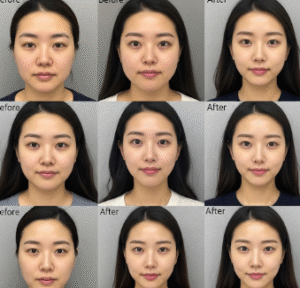Overview
Mood swings refer to rapid, unpredictable changes in emotional states, ranging from happiness or euphoria to irritability, sadness, or anger. While occasional mood shifts are normal, persistent or extreme mood swings may indicate underlying mental health conditions, hormonal changes, or neurological disorders.
In Korea, mental health services are highly accessible, with psychiatric clinics, counseling centers, and integrative medicine programs offering diagnosis, therapy, and medication management for mood-related disorders. Early recognition and treatment can significantly improve quality of life and interpersonal relationships.
Key Facts
➤ Mood swings involve rapid or intense emotional fluctuations.
➤ Can be triggered by hormonal changes, stress, mental health disorders, or physical conditions.
➤ Common in conditions like bipolar disorder, depression, anxiety, or PMS/PMDD.
➤ Persistent mood swings may interfere with work, school, and personal relationships.
➤ In Korea, a combination of therapy, lifestyle management, and medication is widely used.
What are Mood Swings?
Mood swings are changes in emotional state that are more intense, frequent, or unpredictable than normal mood variations. They can affect:
➔ Emotional regulation – difficulty controlling reactions.
➔ Thought patterns – negative thinking or racing thoughts.
➔ Behavior – impulsivity, withdrawal, or aggression.
➔ Physical state – changes in sleep, appetite, or energy.
Mood swings can be temporary (due to stress or fatigue) or chronic, reflecting underlying mental health or medical conditions.
Symptoms Related to Mood Swings
Mood swings may present with:
➤ Sudden happiness, irritability, or anger without clear cause.
➤ Episodes of sadness or tearfulness.
➤ Changes in energy levels – feeling unusually energetic or fatigued.
➤ Impulsivity or reckless behavior.
➤ Altered sleep patterns (insomnia or hypersomnia).
➤ Fluctuations in appetite or weight.
➤ Difficulty concentrating or making decisions.
Causes / Possible Causes
Mood swings arise from biological, psychological, or environmental factors:
Biological Causes
➤ Hormonal changes (menstruation, pregnancy, menopause, thyroid disorders).
➤ Neurochemical imbalances in serotonin, dopamine, and norepinephrine.
➤ Neurological disorders (stroke, traumatic brain injury).
Psychiatric Causes
➤ Bipolar disorder.
➤ Major depressive disorder.
➤ Anxiety disorders.
➤ Borderline personality disorder.
Environmental & Lifestyle Causes
➤ Stressful life events or trauma.
➤ Sleep deprivation or poor nutrition.
➤ Substance use (alcohol, drugs, caffeine).
Risk Factors
➤ Family history of mood disorders or mental illness.
➤ Chronic medical conditions or hormonal disorders.
➤ High levels of stress or emotional trauma.
➤ Irregular sleep patterns or lifestyle habits.
➤ Adolescence or aging (periods of hormonal change).
Complications
Untreated or severe mood swings can lead to:
➤ Relationship difficulties with family, friends, or coworkers.
➤ Poor academic or professional performance.
➤ Increased risk of substance abuse.
➤ Development of depression or anxiety disorders.
➤ Self-harm or suicidal thoughts in extreme cases.
When Should I See a Doctor?
Seek professional help if:
➤ Mood swings are frequent, severe, or disruptive.
➤ Accompanied by thoughts of self-harm or suicide.
➤ Interfering with daily functioning, work, or school.
➤ Linked to other medical or hormonal problems.
Early intervention is crucial to prevent complications and improve emotional stability.
Care and Treatment
Treatment for mood swings depends on the underlying cause:
Lifestyle & Behavioral Approaches
➤ Maintain a consistent sleep schedule.
➤ Engage in regular physical activity.
➤ Practice stress management (meditation, yoga, mindfulness).
➤ Keep a mood journal to track triggers and patterns.
➤ Limit alcohol, caffeine, and recreational drugs.
Psychological Therapies
➤ Cognitive-behavioral therapy (CBT) to identify and manage triggers.
➤ Dialectical behavior therapy (DBT) for emotional regulation.
➤ Counseling and family therapy for support and communication.
Medical Treatments
➤ Antidepressants (SSRIs, SNRIs) for depression-related mood swings.
➤ Mood stabilizers (lithium, valproate) for bipolar disorder.
➤ Anti-anxiety medications if necessary.
➤ Hormonal treatments for thyroid or reproductive-related mood fluctuations.
Treatment Options in Korea
Korea offers a comprehensive approach to mood swing management through mental health clinics, hospitals, and integrative programs:
Diagnostic Services
➤ Psychiatric evaluations and structured interviews.
➤ Blood tests for thyroid, hormonal, or metabolic imbalances.
➤ Psychological assessments and cognitive testing.
Therapies and Support
➤ Individual and group psychotherapy.
➤ Cognitive-behavioral and mindfulness-based programs.
➤ Stress management workshops and wellness programs.
Medical Management
➤ Prescription medications under psychiatric supervision.
➤ Combined therapy approaches for chronic mood disorders.
➤ Regular monitoring and follow-up for treatment effectiveness and side effects.













